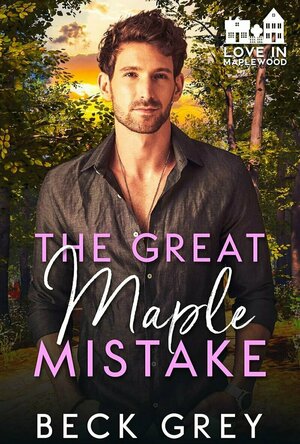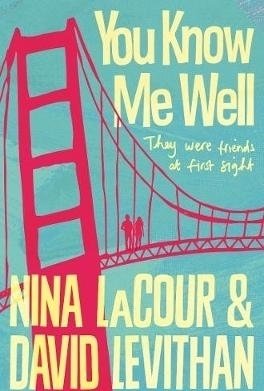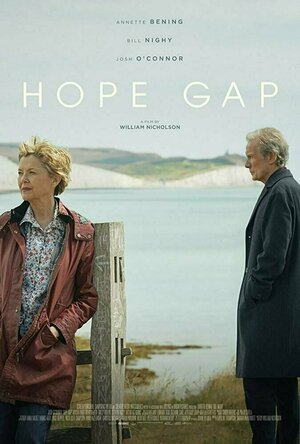
Kingsdown Sundown by Will Varley
Album
With the follow-up to the stellar Postcards From Ursa Minor, an album that propelled Will into...

Cocktails - Virtual Drink Mixer and Recipes
Food & Drink and Lifestyle
App
Another cocktail or recipe app? Virtual reality! Incredibly simple and unique! Mix Cocktails,...

King of Dragon Pass
Games and Entertainment
App
Create your own epic saga of conflict, mythology, and community! This acclaimed game of magical...

The Great Maple Mistake (Love in Maplewood #8)
Book
A small-town photographer who’s given up on love meets a smoking hot firefighter with a smile to...
Contemporary MM Romance
Hazel (1853 KP) rated You Know Me Well in Books
May 25, 2017
David Levithan is a well-known young adult author particularly in the LGBT communities. Throughout his career he has teamed up with other authors to write contemporary fiction that explores romantic relationships and feelings between teenagers. You Know Me Well is the result of a collaboration between Levithan and Nina LaCour, another American YA author.
Alternating between two points of view, You Know Me Well is about two homosexual teenagers, Mark and Katie, who are both going through difficult times in terms of their love life. Mark is in love with his best friend, but clearly the feelings are not reciprocated. On the other hand, Katie has run away from the chance to meet the girl of her dreams. A case of being in the right place at the right time results in a great friendship blooming between the two characters. Whilst relationships are breaking down all around them as a result of their actions, Mark and Katie discover that they understand each other more than anyone else has done in the past. With each other’s help, they begin to repair or come to terms with their current situations.
Although set near San Francisco during Pride Week – a positive festival to promote the stance against discrimination toward homosexuality – Levithan and LaCour write so freely about the topic that it appears a “normal” way of life, which is ultimately what people are campaigning for. Neither of the main characters experience any judgment on account of their sexuality.
Whilst You Know Me Well is a deeply honest novel about coming to terms with the truth and the heartaches of love, it does not particularly work well as a story. The ending feels ambiguous leaving both Mark and Katie in very similar situations to the beginning of the book, although marginally happier. In a way this enforces the point that there are not always “happy ever after” endings, but in terms of literature it does not make much of a story.
You Know Me Well comes with all sorts of messages about love, coming up with plans for the future, running away from your problems etc. but it is arguably a disappointment for readers who want a fictional tale to delve into and take them away from their everyday life. The subject matter, whilst listed as young adult, is more appropriate for school leavers or college students due to the unrealistic lack of parental intervention. On the other hand, if you are already a fan of David Levithan and know what to expect in his novels, You Know Me Well should live up to your anticipations.
Hazel (1853 KP) rated You Know Me Well in Books
Dec 7, 2018
David Levithan is a well-known young adult author particularly in the LGBT communities. Throughout his career he has teamed up with other authors to write contemporary fiction that explores romantic relationships and feelings between teenagers. <i>You Know Me Well</i> is the result of a collaboration between Levithan and Nina LaCour, another American YA author.
Alternating between two points of view, <i>You Know Me Well</i> is about two homosexual teenagers, Mark and Katie, who are both going through difficult times in terms of their love life. Mark is in love with his best friend, but clearly the feelings are not reciprocated. On the other hand, Katie has run away from the chance to meet the girl of her dreams. A case of being in the right place at the right time results in a great friendship blooming between the two characters. Whilst relationships are breaking down all around them as a result of their actions, Mark and Katie discover that they understand each other more than anyone else has done in the past. With each other’s help, they begin to repair or come to terms with their current situations.
Although set near San Francisco during Pride Week – a positive festival to promote the stance against discrimination toward homosexuality – Levithan and LaCour write so freely about the topic that it appears a “normal” way of life, which is ultimately what people are campaigning for. Neither of the main characters experience any judgment on account of their sexuality.
Whilst <i>You Know Me Well </i>is a deeply honest novel about coming to terms with the truth and the heartaches of love, it does not particularly work well as a story. The ending feels ambiguous leaving both Mark and Katie in very similar situations to the beginning of the book, although marginally happier. In a way this enforces the point that there are not always “happy ever after” endings, but in terms of literature it does not make much of a story.
<i>You Know Me Well </i>comes with all sorts of messages about love, coming up with plans for the future, running away from your problems etc. but it is arguably a disappointment for readers who want a fictional tale to delve into and take them away from their everyday life. The subject matter, whilst listed as young adult, is more appropriate for school leavers or college students due to the unrealistic lack of parental intervention. On the other hand, if you are already a fan of David Levithan and know what to expect in his novels, You Know Me Well should live up to your anticipations.
Emma @ The Movies (1786 KP) rated Hope Gap (2020) in Movies
Mar 8, 2020
Edward and Grace have been married for 29 years but the humdrum living has become too monotonous, for Edward at least. He's felt like his life needs something different for a while, knowing that Grace will react badly he invites their son to aid in his plan to leave, but he too is in the dark about what on the cards for his visit.
I was keen to enjoy this one but I think sadly the film doesn't hit all the right notes. The set up of Edward (Nighy) and Grace (Bening) in the house together perfectly reflects their relationship. Everything is together and yet they're separate. They work in different rooms, their backs to each other and while they acknowledge each other and interact it's more habit than anything else.
I'm not the best at picking up subtle things when watching films the first time around, but I noted down a couple of times that there seemed to be a lot of colour coordination. Both main characters seemed to match with parts of the house and yet those colours never seemed to cross together at any time... one of the perils od not being able to rewind a film to check is that I'm left wondering if I actually saw something or not. Perhaps I imagined it! The similarities also extended to their son Jamie and his room... according to my unverifiable notes.
I thought that Josh O'Connor and Bill Nighy had a great dynamic together, their characters share many "inherited" traits together and that played out well on screen. Annette Bening's performance was strong at times and you could definitely see the progression clearly in Grace... but...
With those good touches came a lethargic pace. The laid back sense of the whole film with just Grace as the energetic feature was a struggle to watch. I can see that it could be exactly how it would happen in reality but that doesn't mean it will work on film when you aren't invested in the parties involved.
Hope Gap touches on some strong points but never seems to address them very directly. I'm not sure I can see another way that this would have jumped off the screen, in my head it feels more suited for the intimate setting of a theatre.
Originally posted on: https://emmaatthemovies.blogspot.com/2020/03/hope-gap-movie-review.html

Kung Fu Panda Holiday Storybook
Book and Entertainment
App
★ Featured in "What's Hot" in the Apple App Store iStoryTime brings you Kung Fu Panda Holiday...

Lonely Planet Ethiopia, Djibouti & Somaliland
Lonely Planet, Stuart Butler, Tim Bewer and Jean-Bernard Carillet
Book
Lonely Planet: The world's leading travel guide publisher Lonely Planet Ethiopia, Djibouti &...


